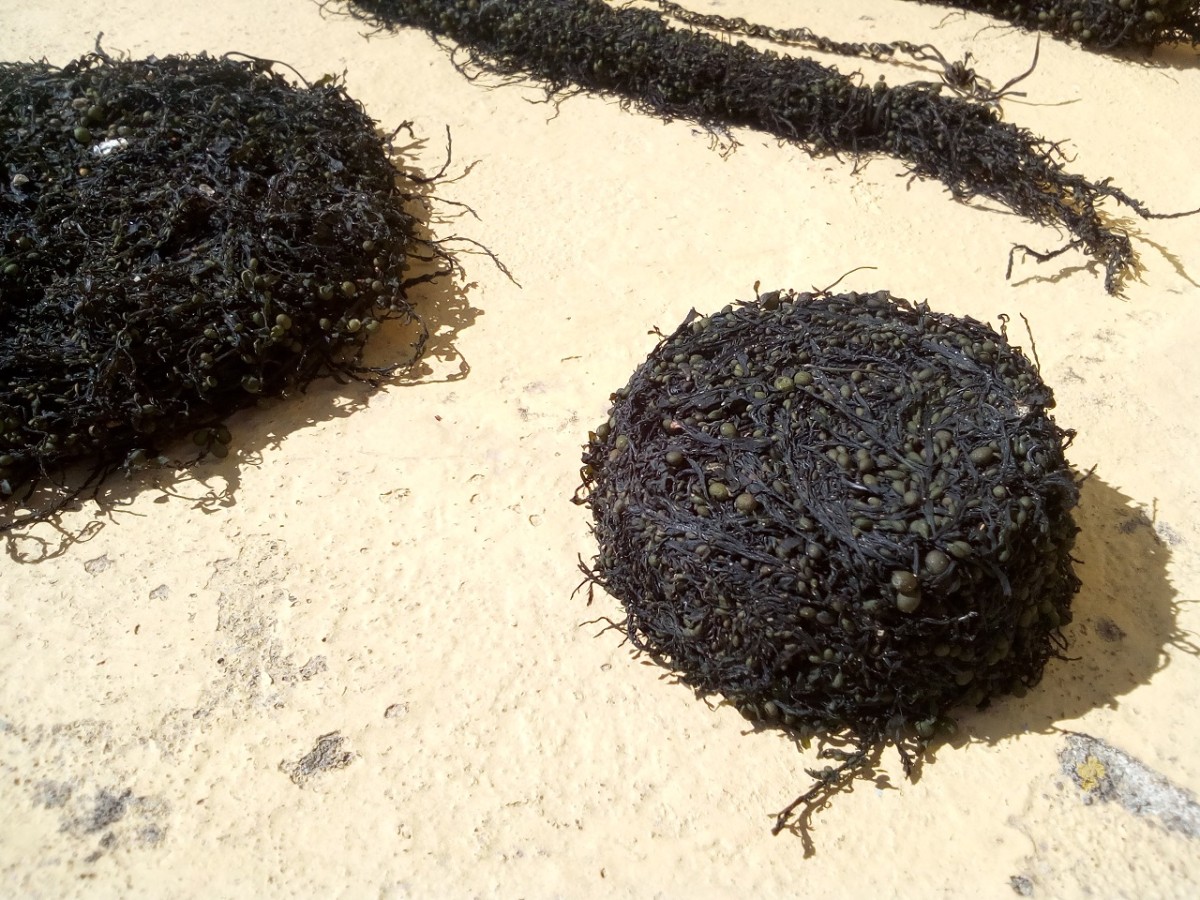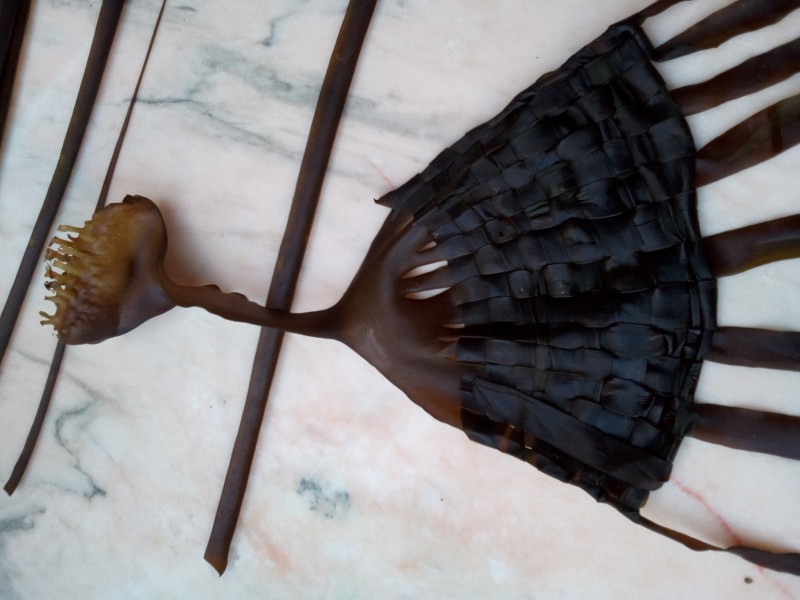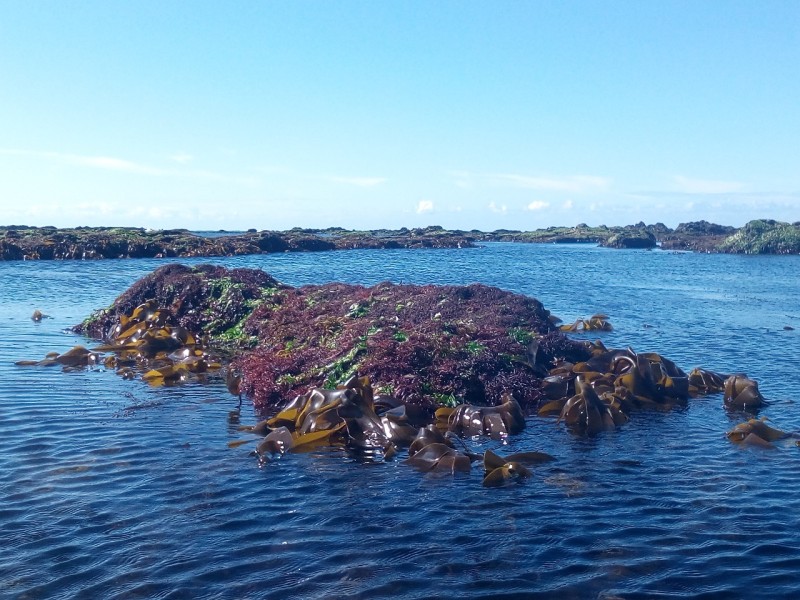
# 0032
Algaetrans
Prática de transformação, Várias Items, Comum, Recolhido, Museu, Polímeros, Anos
Dados Sócio-culturias
Usos Históricos
After big Atlantic storms on the northern coast of Portugal the kelps and other indigenous seaweeds were harvested directly from the shoreline by the sargaceiras for use as fertilser on the land. This practice is recorded from the 14th century onwards but since the late 1970s has declined as modern, synthetic fertilisers replaced seaweed.
Usos Presentes
Seaweeds are used widely in the food and cosmetic industries. The mineral composition of seaweed plus its natural alginates that aid in moisture retention, make it an ideal slow release fertilser for bio- or organic agriculture and it is used as an additive in hydroseeding machines for reseeding damaged land or new infrastructure projects. See, for example, Swiss company Verdyol.
Exprimental, usos de futuros próximos
Seaweed farms and seaweed harvesting from natural stands is being explored in Portugal, UK and other European countries with sea borders for further commercial potential. Presently seaweeds are used in food and cosmetics industries but research centres in Portugal in the Universities of Porto, Aveiro and Minho are investigating other possibilities. However, harvesting from natural stands needs to be monitored to ensure habitats are not depleted. CIMAR, University of Porto has a project SWUAV that is mapping the interstitial zone using UAV images taken by drones to check biomass growth of local and invasive species.
Outros Factos Fascinantes
Sargassum muticum arrived from Japan probably by being pumped out from the bilge of a container ship.
Dados Técnicos
Classe de Material
Polímeros
Métodos de processamento · Imagem / Vídeo / Áudio (.jpg, .png, .mp4, .mp3 até 30MB)

Autor(es) em processo ou ementa
Alastair Fuad-Luke
Dados Geográficos Bio-temporais
Local de Origem · Imagem / Vídeo / Áudio (.jpg, .png, .mp4, .mp3 até 30MB)

Tempo de residência (Quando tempo é que a matéria/material/artefacto se mantém num estado inalterado numa localização/contexto/sistema antes da sua degradação?)
Anos
Como é que o item afeta o ambiente no qual existe?
Nutre-o
Dados Ontológicos-cosmológicos
liveliness
Como é que gostaria de estar com este artefacto/material/ser vivo/matéria?
to spend time in its habitat to get to know it better
Como é que transformar este artefacto/material/ser vivo/matéria? o/a transforma a si?
it is a quiet process that needs time, so I slow down
O que é que o ser humano pode devolver a este artefacto/material/ser vivo/matéria?
we can give our time to understand what the seaweeds need to flourish